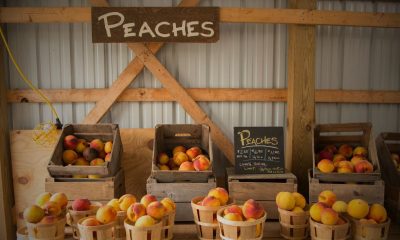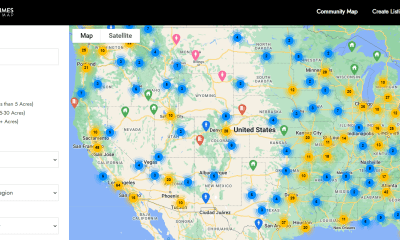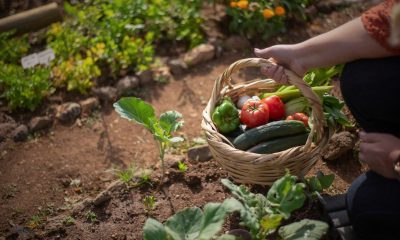Business
“I Have No Idea What I’m Doing”
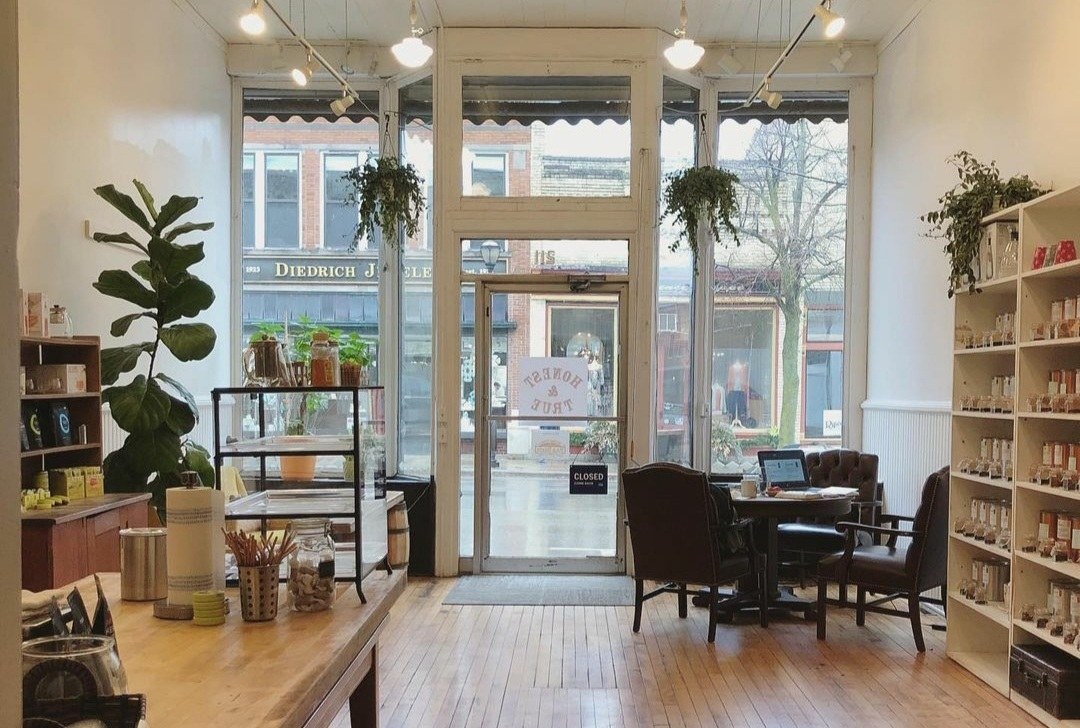
Good day Beartarians! Wiscobear here to share a little of my story.
I don’t often sit down and think about how I ended up where I am, but when I did to write this article I couldn’t stop smiling at how obvious it is that God’s been leading this whole journey. In the moment it never really felt like it. I often fought with God and tried on multiple occasions to walk away from this path. Spoiler alert: I eventually gave up and decided to trust him. My life motto that I’ve acquired over these last few years is “I have no idea what I’m doing”. I want to brand that and slap it on business cards and t-shirts…. it’s funny because it’s true. But something I’ve come to discover is that you don’t really need to know because God’s in control anyway. My parents and I own a tea shop in a small Wisconsin college town known as Ripon. We’ve been at it for 4 years. But this story is about my journey to becoming a kombucha brewer and it starts about 2 years ago…
There’s SO MUCH that has happened that I want to share with you all, and maybe in the future I will. But I think for now I don’t need to focus on all of the details and trying to get all the stories in. Because the journey was never about all the things that happened, and all the things I went through to get where I am. It’s about how God has been growing me all along the way. It’s about overcoming self doubt, taking steps of faith, and seeing Him work amazing things.
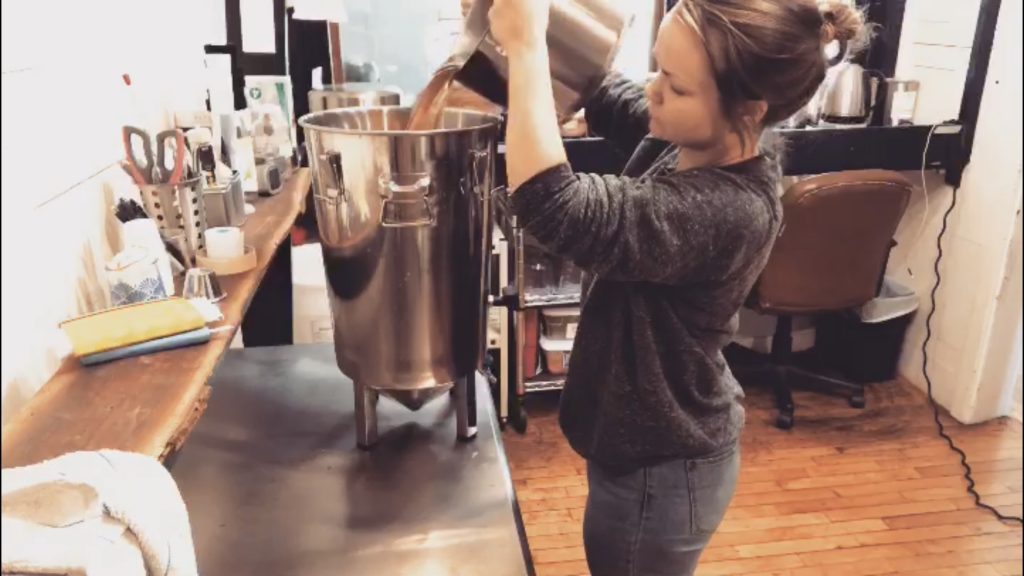
My story is not about me at all, but about how God can use a regular, small town girl to do something kind of cool.
I started my adventure brewing kombucha as a joke. A friend brought me the supplies to try my hand at it, and I gave it a shot as something to occupy my free time. Obviously I didn’t know what I was getting myself into. I quickly found out that the product I was making was wanted by my town. It became popular enough for my little hobby to grow beyond just brewing one gallon every week or so, to having two, 7 gallon batches on constant rotation. So I was blessed with success, but I didn’t know what I was supposed to do with it. Kombucha is just now starting to become popular in Wisconsin. My state has 2 major breweries and a handful of smaller ones, but more importantly there are no other handcrafted brewers close to my town. So being a business woman I saw the opportunity to get in on the ground floor and establish my brand before the inevitable health fad swept our way. If I didn’t, someone else would, and I knew if that happened I would regret not taking my chance.
Life is never that simple though. Even though the business prospect motivated and challenged me, I was wrought with self doubt and insecurity. I’m a perfectionist, especially when it comes to my work. I want to be the best at whatever it is that I’m doing at the moment, so when it came to kombucha I wanted to be the best brewer with the best product and the best business. I wanted to outshine every other brewery in existence, anything short of extraordinary would be failure to me. Now obviously that’s extremely selfish and messed up in many ways, but that’s not how I saw it. I genuinely felt that if I wasn’t doing my absolute best and sinking every last piece of myself into brewing a product that stood out from the rest, then there was no point in trying. This pursuit of perfection and struggle with self doubt led to eventual burnout.
But along the way God used every single thing that happened to grow and strengthen me.
I had people try to steal my recipe and brewing secrets – that taught me how to protect my business and showed me that I must be doing something right if people are trying to copy my ways.

I got involved in a very dysfunctional business partnership – this taught me to never compromise on my beliefs or my family, and to always trust my gut instinct. Ironically it’s also how I acquired the name “Honest & True”.
My business moved locations twice in 4 months – this was just all out tiring but showed me how God’s hand was in control of everything.
The health department shut down my operation for almost 6 months because I didn’t have paperwork I wasn’t aware I needed – this was ultimately what made me face myself and wrestle with why I was on this path. It also taught me not only how to work in, but also around, the beast system that we live in.
These are just a few of many things that led me to finding myself sitting alone in my shop, in March of this year, a day after Wisconsin announced their state wide shutdown for coronu. I had spent my time, energy, savings, and every bit of myself to invest in this business. And suddenly I was here, still shut down by the health department, sitting in a quiet storefront making $0 a day. I was done. Why had I just gone through everything I did to end up here? What’s the point of that? I looked out my windows at the eerily empty streets and asked God for guidance. I can’t explain what happened, but I suddenly understood. I just… got it. My business is, and never was mine. It’s God’s, I’m just the person that’s supposed to take care of it. I didn’t need to worry about losing it because if I did that would be okay, God has the authority to decide if it’s done. But I don’t have the right to complain or worry if I wasn’t going to do what I knew I was supposed to be doing – brewing.
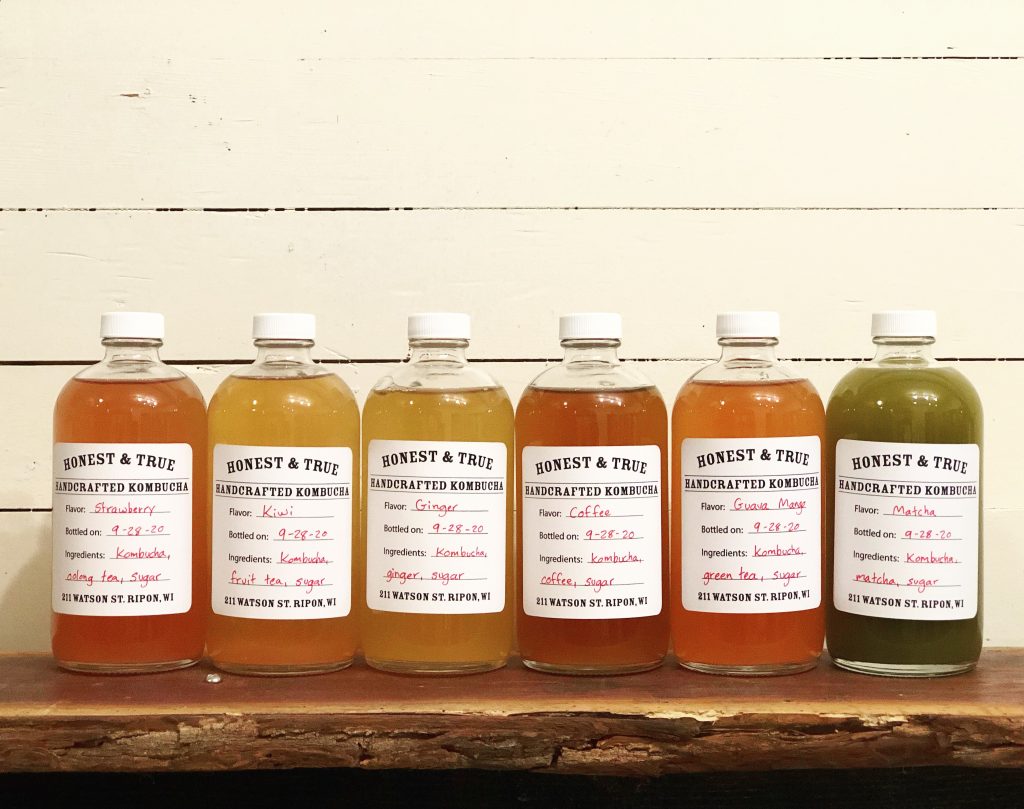
I remember looking back to the windows of my brewing room and realizing how long it had been since I brewed a batch. I let the struggles and the stresses take the joy out of my craft. I saw it as a burden instead of a blessing. A fire was lit in me. That day I brewed my first batch in months, and a week later when I advertised it on social media it sold out by the end of the day. Ever since then I no longer struggle with that nagging feeling of self doubt. Because I’m not doing this to make a name for myself, I’m just here to make a good product for as long as God allows. The name “Honest & True” adorns my windows and business cards as a reminder to be just that, in all areas of life. I want people to see those words and know that they are getting a product made with integrity. And in times such as these, nothing is more valuable and cherished than that. I’m not the greatest brewer and I genuinely never really know what I’m doing. I’m not that successful, most months I don’t even know how I’ll pay rent. But somehow I always do.
All I know is, when you give up control, let God lead, and stand for truth; he can lead you down some amazing paths.
So bears, for me it was kombucha. What is it for you?
*You can find Honest and True at:
Address: 211 Watson St. Ripon, Wi. 54971
Email: honestandtrue.wi@gmail.com
Facebook: Honest & True Tea
Instagram: Business page: @honestandtruewi Kombucha page: @honestandtruekombucha
Website: currently unavailable (Looking for a bear web designer!)
Business
3000 Members In Our Business Group!: This Week On Our Community App!
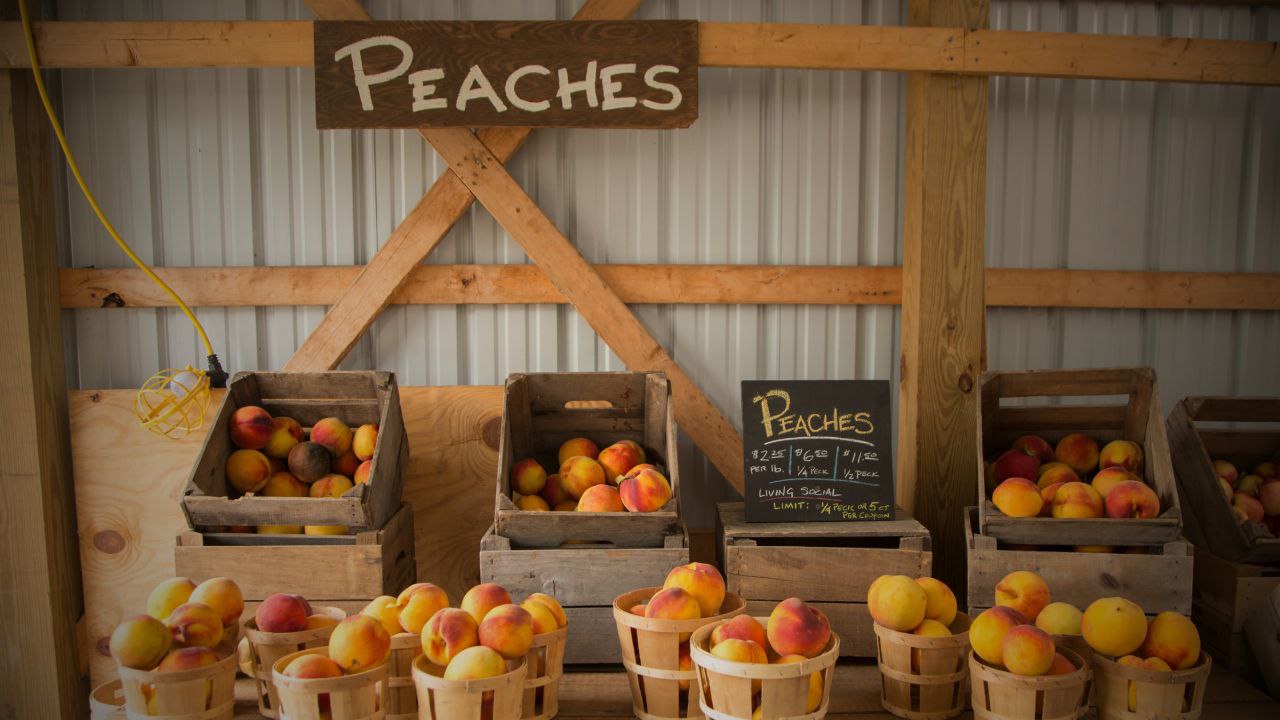
Our thriving business group hosts 3,000 members, from small solo entrepreneurs to developed companies. This week, we aim to give more exposure and introductions to the businesses of Beartaria.
We encourage the businesses of Beartaria to introduce themselves and what they do in the business group and the local state groups. We invite our community to jump into these groups to see what is going on!
This can help the wider community know that you are on the app and what you do.
As a community app that doesn’t do paid ads, lots of generic posts that just advertise your business can be a little bland.
Let’s add some value to it, here are some ideas that can help make a good introduction:
- What do you do?
- How did you get started?
- Where are you located?
- Why do you love what you do?
- What are your goals?
- How has Beartaria helped your business, whether directly or through the integration of values and practices?
- Do you have any big lessons learned through your experience that could help others?
- Let’s see some pictures or videos of your work!
We look forward to seeing all the great businesses and professionals at work in Beartaria!
Sincerely,
The Beartaria Times
If you are interested in joining our community app, you can try it out with a 7 day free trial at App.BeartariaTimes.com
Business
Former NASA Mechanic Secured To Design Classical Learner’s Elementary STEM Program
“Skills create opportunities, and we can use those skills to guide our children to become young entrepreneurs and create opportunities for themselves.”

We have received word from Brett Pike at classicallearner.com that former NASA mechanic and industrial engineer Mark Thaxton has been secured to design Classical Learner’s homeschool elementary STEM program.
Mark has vast experience as a helicopter mechanic in the Marines, a wind tunnel mechanic at NASA, and currently an industrial engineer in the truck industry.
This is big news for the growing homeschool curriculum and social network.
While Brett’s expertise in American history and entrepreneurial education has launched Classical Learner and Homeschools Connected to success, the new STEM program is set to take Classical Learner to a new level of in-depth science, technology, engineering, and math studies.
Brett told a reporter at Beartaria Times,
“We as parents can teach our children real skills for the real world from a very young age. Skills create opportunities, and we can use those skills to guide our children to become young entrepreneurs and create opportunities for themselves.”
Brett Pike
Engineer Mark Thaxton added,
“I aim to help the youth truly understand the most basic fundamental concepts used in making and designing all we do and see.
We can erase the stigma that engineering language and concepts are too abstract for anyone to learn and understand.
I want to eliminate the “magic” behind the way things work and give that “magic” names, logic, and ways to use them throughout life.
The ultimate goal of these lessons is to use basic fundamental concepts as the base of your learning castle. I sincerely hope that when learning something new and complicated in the future, our students will be able to draw a parallel to these courses, which will aid in understanding those future concepts.”
Congratulations Brett and Mark!
We are excited to see this develop and the response from Classical Learner’s growing community of homeschoolers.
@ClassicalLearner on The Beartaria Times to connect with Brett.
@Thaxton Bear on The Beartaria Times App to connect with Mark.
For a three-day free trial and to support Beartaria Times, you can sign up to Classical Learner’s Homeschools Connected platform with an affiliate link,
ClassicalLearner.com/Beartaria
Business
One Man’s Trash…
The smooth, soft feel of the flats and curves. The smell of the copper oxide on my skin and the sound of the various pieces as they fell into one another. It all intrigued me and seemed to intensify as time passed.
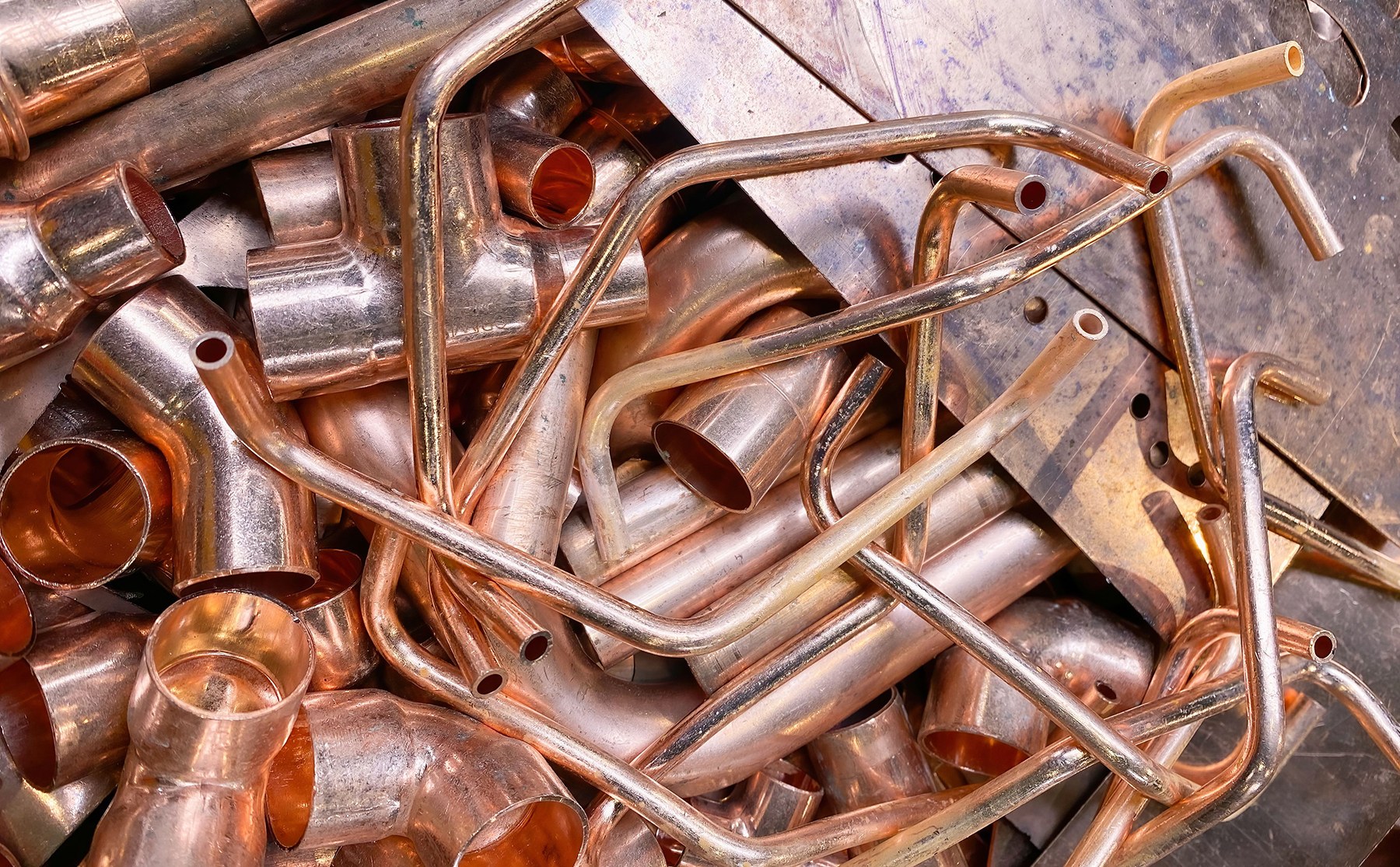
By: MrWhitBear
As a lifelong copperhead, I found myself wondering what I was going to do with this industrial storage tote filled to the brim with all things copper. It was a treasure trove collected from years of being a commercial plumber. From the early years of re-plumbing our family’s laundromat business with my Pop to the water conditioning business, we started together that failed. That tote had been many a mile on more adventures than anyone of us could account for. After that final attempt, we closed that tote up and packed it away.
I would open it from time to time to get something or drop something in and reminisce over pieces that brought me back to that moment and place. The jobs my wife and I worked together to make ends meet; So many pieces and parts in various states of patina.
The smooth, soft feel of the flats and curves. The smell of the copper oxide on my skin to the sound of the various pieces as they fell into one another. It all intrigued me and seemed to intensify as time passed.
We had always intended to just take it to the recycling center, and albeit nearly did when things got really lean in the last few years, (that’s another story.)
But God in his mercies had another plan
Those rosey-colored bits of beauty were called out of that dusty old tote into the light and brought back to life for another purpose that I could have never imagined.
Then one day, I realized that in my love for all things copper, I was not alone.
Imagine my surprise when listening to a Biocharisma podcast and seeing the sultan of the Gardenians light up like a kid talking about copper garden tools. My mind wandered off to that tote.
“Huh, I wonder.”
Over the years, all sorts of odd inventions were created from that box of scraps, but this was by far on another level of magnitude; could it be done?
My dad’s voice echoed through my head
“See a need fill a need, son.”
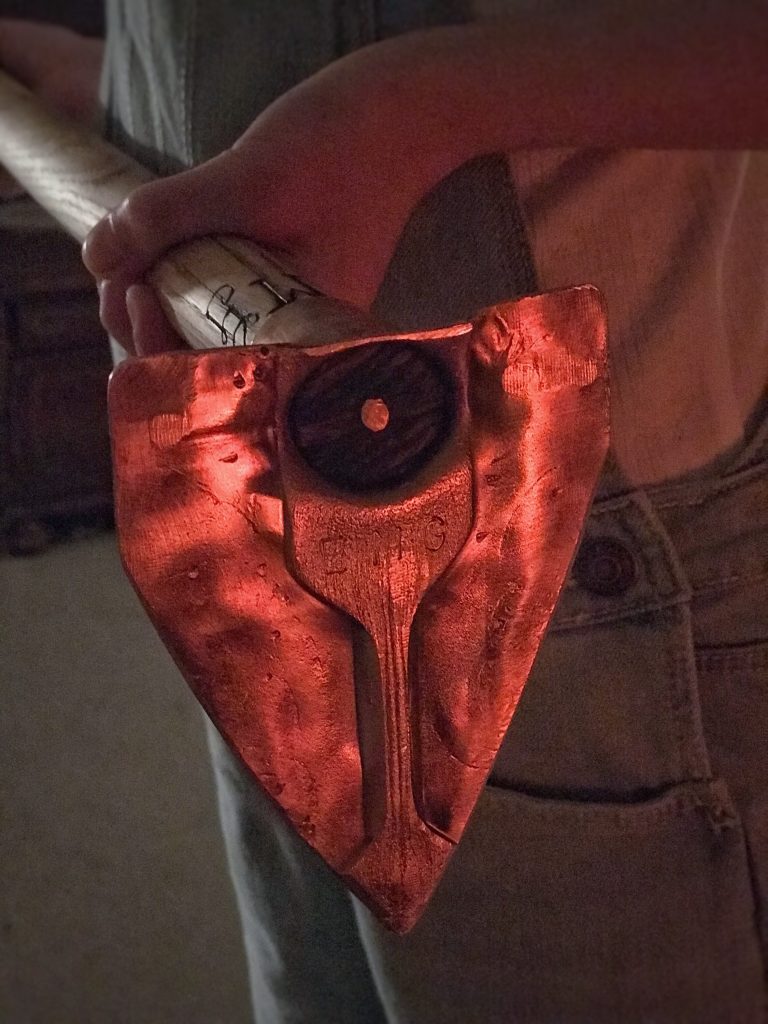
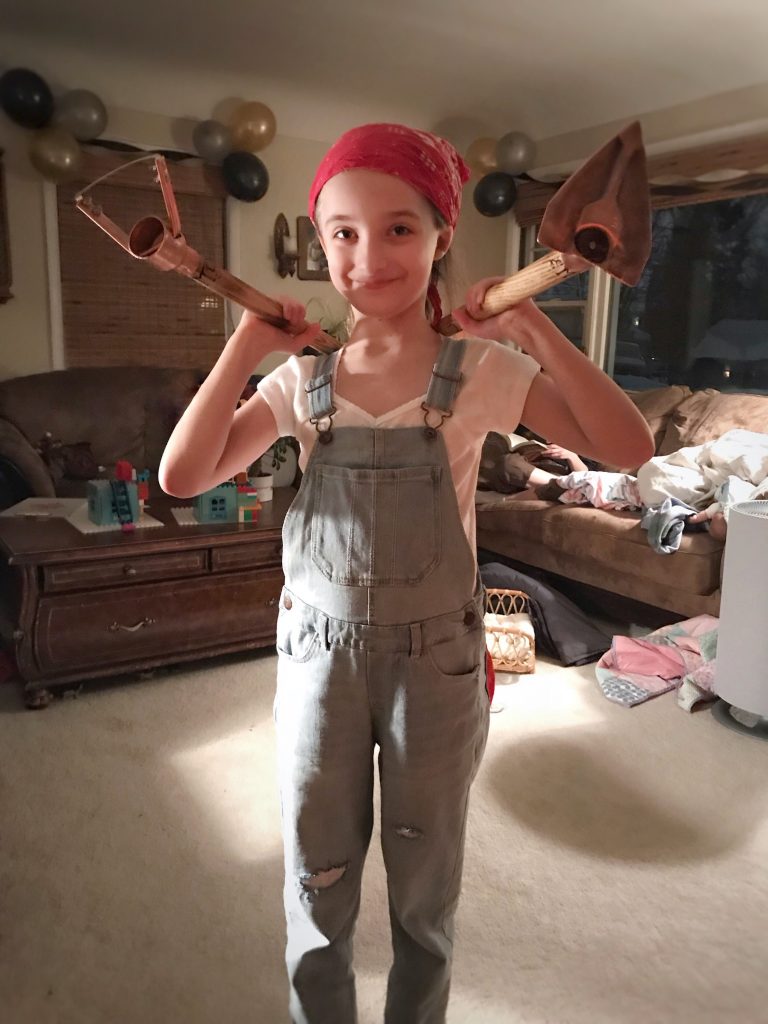
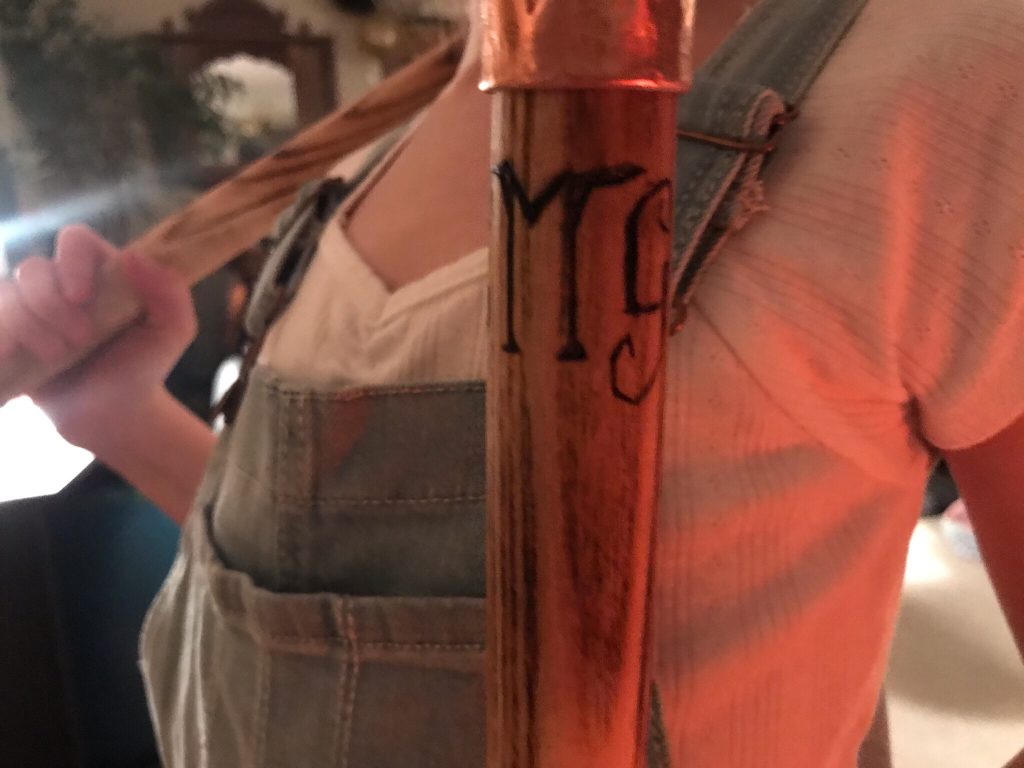
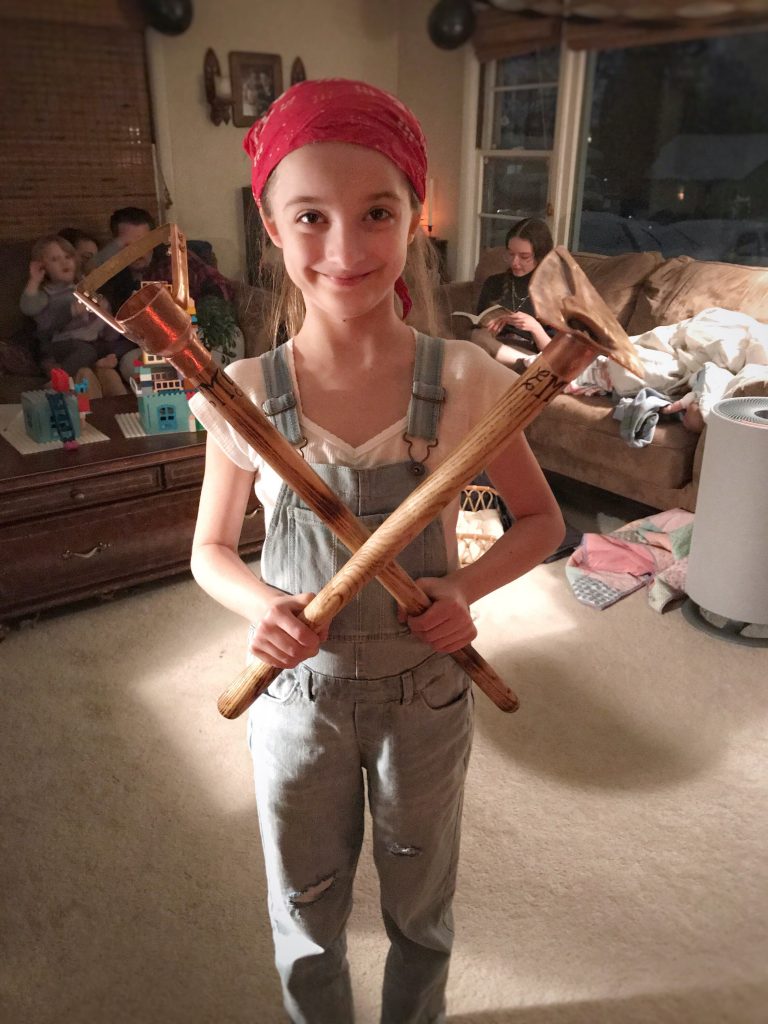
The Bears need copper tools to make their gardens flourish. Many tools were forged out of that treasure trove of leftovers, and we’ve had to buy most of this year’s supply to keep up with demand.
The first trowel had to go to Topher as a tribute to the legend for the inspiration, of course. Unfortunately, the prices of components prohibit keeping costs as low as we’ve wanted. We still keep it near cost for our Bear families, and thanks to them and the grace of God, we’ve grown in skill and productivity.
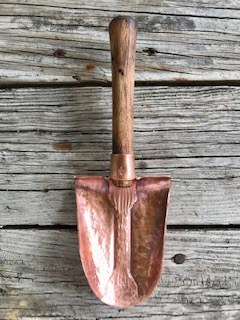
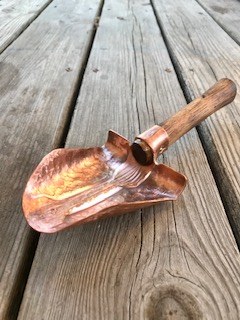
Now my hobby pays for itself, and a bit left over for the bee’s new boxes and some fresh paint this season.
Bee Alchemy helped me turn copper into liquid gold…
It was great meeting so many of you at the Festival!
God bless.
-

 Lifestyle3 weeks ago
Lifestyle3 weeks agoIndependence Isn’t for Everyone
-

 Farming3 weeks ago
Farming3 weeks agoThe Rise of Small-Scale Farming: Benefits, Challenges, and Tips for Success
-

 Just Crushing2 weeks ago
Just Crushing2 weeks agoLegends Spiral Upwards: Embracing Timeless Attributes
-

 Farming3 weeks ago
Farming3 weeks agoThe Power of Community: How Local Groups Can Strengthen Homesteads
-

 Lifestyle2 weeks ago
Lifestyle2 weeks agoBuilding a Sustainable Off-Grid Home: A Fundamental Guide
-

 Lifestyle2 weeks ago
Lifestyle2 weeks ago10 Essential Skills Every Homesteader Should Master
-

 Just Crushing1 week ago
Just Crushing1 week agoComedian Owen Benjamin Disrupts The Comedy Scene
-

 Farming3 weeks ago
Farming3 weeks agoThe Buzz and Benefits of Beekeeping for Homesteaders







